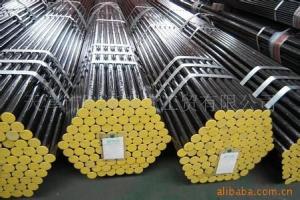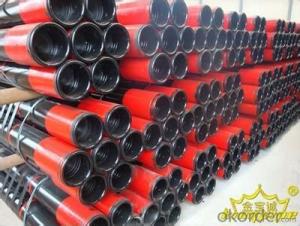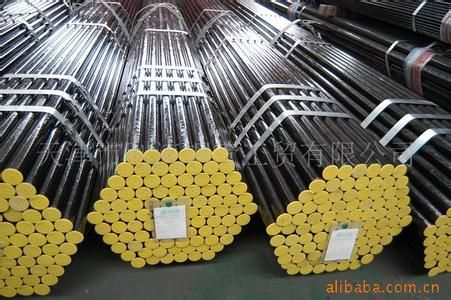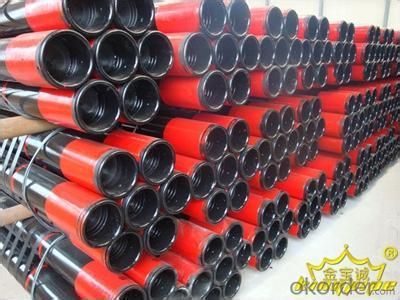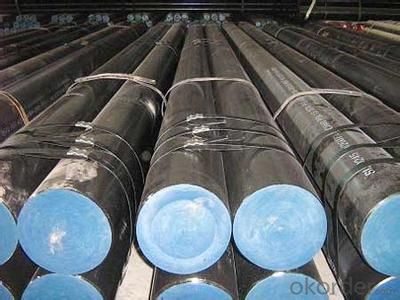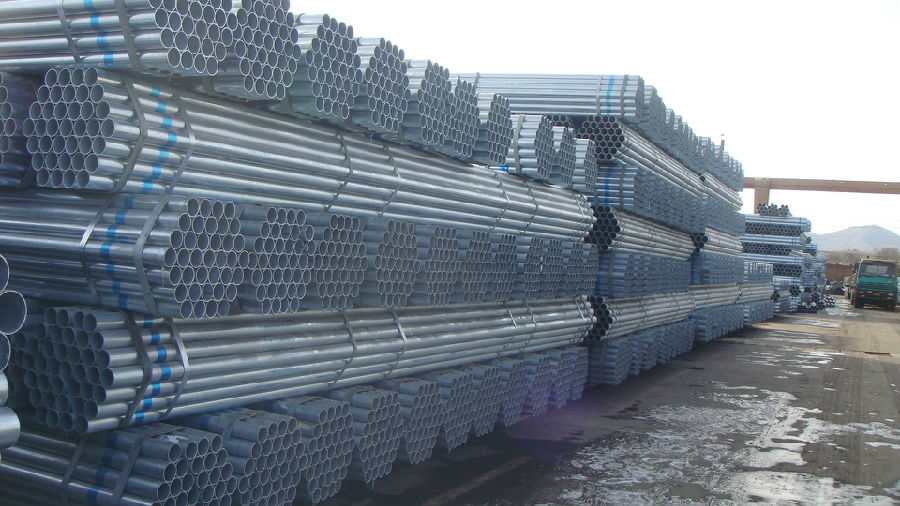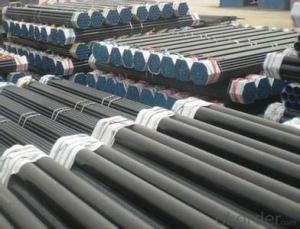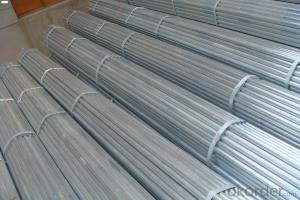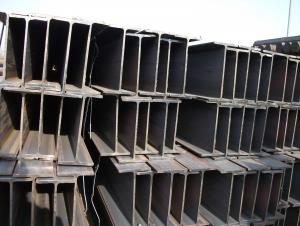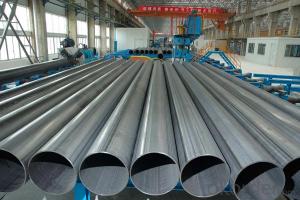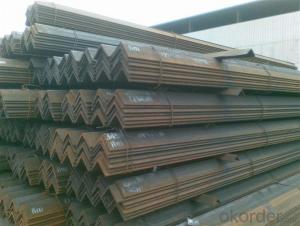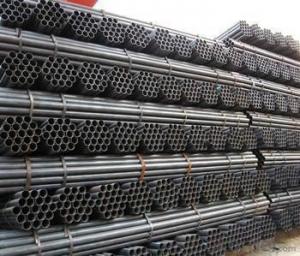Steel Pipe with High Quality and Best Price Q345 and so on
- Loading Port:
- Tianjin
- Payment Terms:
- TT OR LC
- Min Order Qty:
- 25 m.t.
- Supply Capability:
- 8000 m.t./month
OKorder Service Pledge
OKorder Financial Service
You Might Also Like
Product Description:
1、Structure of Steel Pipe Q345 Descrption:
steel welded pipe is actually a cover term, covering a wide range of alloy and making them suitable for different attributes that are used in a very wide and large numbers of different industries. Stainless steel pipe is resistant to erosion, highly flexible, powerful, easy to use, and can be done in distinct approaches, which means that more and more stainless steel was used as a construction material for large-scale, high impact buildings. It can be molded, rolling, and it can create amazing shapes to make it perfect, It is used as experimental buildings, The use of steel pipe welding of large stainless steel covers other examples.
2、Main Features of the Steel Pipe Q345:
·Highly demanded
·Durable
·Reliable
·resist corrosion
·reasonable price
3、Steel Pipe Q345 Images:
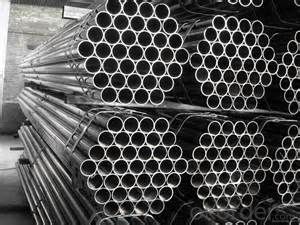
4、The Steel Pipe Q345 Specification:
Standard JIS, DIN, ASTM
JIS G3445-2006, JIS G3444-2006, JIS G3446-2004, DIN EN 10216-1-2004, DIN EN 10217-1-2005, DIN EN 10305, ASTM A106-2006, ASTM A53-2007, ASTM A789-2001, ASTM A1020-2002, ASTM A179-1990, ASTM A199Grade Cr-Mo alloy, Mo, ST35-ST52, Q195-Q345, CrNi alloy
15CrMo, 10CrMo910, 30CrMo, 15Mo3, 16Mo, St37, St52, St42, St45, Q235, Q345, Q195, Q215, Cr17Ni8, 1Cr13Mn9Ni1NThickness 2 - 50 mm Section Shape Round Outer Diameter 10 - 900 mm Secondary Or Not Non-secondary Application Structure Pipe Technique EFW Certification API Surface Treatment Paint Special Pipe API Pipe Alloy Or Not Non-alloy
Specifications
1.W.T from 2mm to 70mm
2.OD from 10 to 1200mm
3.product by our own factory
4.on time dilivery
5、FAQ of Square Tube:
①How is the quality of your products?
Our products are manufactured strictly according to national and internaional standard, and we take a test
on every pipe before delivered out. If you want see our quality certifications and all kinds of testing report, please just ask us for it.
Guaranteed: If products’ quality don’t accord to discription as we give or the promise before you place order, we promise 100% refund.
②How about price?
Yes, we are factory and be able to give you lowest price below market one, and we have a policy that “ for saving time and absolutely honest business attitude, we quote as lowest as possible for any customer, and discount can be given according to quantity”,if you like bargain and factory price is not low enough as you think, just don’t waste your time.Please trust the quotation we would give you, it is professional one.
③Why should you chose us?
Chose happens because of quality, then price, We can give you both.Additionally, we can also offer professional products inquiry, products knowledge train(for agents), smooth goods delivery, exellent customer solution proposals.Our service formula: good quality+good price+good service=customer’s trust
SGS test is available, customer inspection before shipping is welcome, third party inspection is no problem.
Any question, pls feel free to contact us !
- Q: What is the impact toughness of steel pipes?
- The ability of steel pipes to withstand sudden or high-velocity impacts without fracturing or breaking is referred to as their impact toughness. This property measures the material's resistance to cracking when subjected to dynamic loading conditions. The impact toughness of steel pipes is highly significant as it determines their capacity to endure accidental impacts or external forces during transportation, installation, and operation. To evaluate the impact toughness of steel pipes, standardized tests such as the Charpy V-notch test or the Izod test are commonly utilized. These tests involve striking a notched sample of the steel pipe with a pendulum or a falling weight and measuring the amount of energy absorbed by the material until it fractures. The impact toughness is then calculated based on this energy absorption. A high impact toughness is desirable in steel pipes as it signifies a greater ability to absorb energy and resist fracture, making them more resilient to sudden impacts or loading conditions. This characteristic is particularly crucial in applications where steel pipes are exposed to high-stress environments, such as in oil and gas pipelines, automotive components, or structural applications. Several factors can influence the impact toughness of steel pipes, including their chemical composition, heat treatment, and microstructure. For instance, alloying elements like manganese, chromium, and nickel can enhance the impact toughness by promoting the formation of fine-grained microstructures and preventing crack propagation. Similarly, appropriate heat treatment processes like quenching and tempering can optimize the material's microstructure and mechanical properties, thereby improving its impact toughness. In conclusion, the impact toughness of steel pipes is a vital property that determines their ability to withstand sudden or high-velocity impacts. It is evaluated through standardized tests and can be influenced by factors such as chemical composition, heat treatment, and microstructure. A high impact toughness is desirable in steel pipes to ensure their structural integrity and resistance to fracture when subjected to dynamic loading conditions.
- Q: What is the difference between steel pipes and PVC-M pipes?
- Steel pipes are made of a strong and durable metal, while PVC-M pipes are made of a thermoplastic material known as polyvinyl chloride modified. The main difference lies in their composition and characteristics. Steel pipes are typically heavier and more robust, offering greater strength and resistance to high pressure and temperature. On the other hand, PVC-M pipes are lightweight, flexible, and corrosion-resistant, making them ideal for applications where chemical resistance and ease of installation are crucial factors.
- Q: Can steel pipes be used for underground water lines?
- Yes, steel pipes can be used for underground water lines. Steel pipes are commonly used for water distribution systems as they are durable, strong, and resistant to corrosion. However, it is important to consider the specific conditions and requirements of the project, as other types of pipes such as PVC or HDPE may be more suitable in certain situations. Proper coating and insulation should also be applied to steel pipes to protect against underground environmental factors.
- Q: Can steel pipes be used for transporting gases?
- Yes, steel pipes can be used for transporting gases. Steel pipes are commonly used for gas transportation due to their high strength, durability, and resistance to corrosion. They can effectively withstand high pressure and temperature conditions, making them a reliable choice for gas transmission systems.
- Q: Is the electric pipe used with steel pipe or PVC pipe?
- When the electric wire pipe is laid, the steel pipe can be adopted, or the plastic pipe can be adopted, but the steel tube must not be used in the ceiling. The standard explanation is for rat bite.
- Q: Can steel pipes be used for electrical conduit systems?
- Yes, steel pipes can be used for electrical conduit systems. Steel pipes are a popular choice for electrical conduit systems due to their durability and strength. They are capable of providing protection to electrical wires and cables from physical damage, moisture, and other environmental factors. Steel pipes also have high resistance to fire, making them suitable for installations in buildings where fire safety is a concern. However, it is important to note that steel pipes may require proper grounding to prevent electrical shocks and should comply with local building and electrical codes.
- Q: What is the difference between steel pipes and fiberglass pipes?
- The main difference between steel pipes and fiberglass pipes lies in their composition and properties. Steel pipes are made of metal and are known for their strength, durability, and resistance to high temperatures and pressure. They are commonly used in industrial settings and for transporting liquids and gases. On the other hand, fiberglass pipes are made of glass fibers embedded in a resin matrix, providing them with excellent corrosion resistance, lightweight properties, and insulation capabilities. Fiberglass pipes are often used in applications where corrosion is a concern, such as in chemical processing plants or wastewater treatment facilities.
- Q: Are steel pipes resistant to earthquakes?
- Compared to other materials like concrete or PVC pipes, steel pipes are commonly regarded as more resistant to earthquakes. This is because steel possesses inherent properties such as high tensile strength and flexibility. These properties enable steel pipes to effectively absorb and distribute seismic energy during an earthquake, enabling them to endure shaking and ground movements more effectively. Moreover, steel pipes have the capability to deform without rupturing or collapsing, reducing the risk of structural failure. However, it is crucial to note that the earthquake resistance of steel pipes ultimately relies on various factors including the design, installation, and overall structural integrity of the piping system. To ensure the highest level of earthquake resistance for steel pipes, it is imperative to adhere to proper engineering and construction practices.
- Q: How are steel pipes used in the manufacturing of shipbuilding?
- Steel pipes are used in the manufacturing of shipbuilding primarily for their strength, durability, and corrosion resistance. They are commonly used in various applications such as the construction of hulls, decks, bulkheads, and piping systems within the ship. The pipes are used for carrying fluids, gases, and other materials throughout the vessel, ensuring efficient operation and safety. Additionally, steel pipes are crucial for the installation of essential systems like water supply, fire-fighting, heating, and ventilation, contributing to the overall functionality and structural integrity of the ship.
- Q: What are the different types of steel pipe coatings for corrosive environments?
- There are several types of steel pipe coatings specifically designed for corrosive environments. Some common options include fusion-bonded epoxy (FBE) coatings, liquid epoxy coatings, polyethylene (PE) coatings, and polyurethane (PU) coatings. These coatings provide a protective layer to prevent corrosion and extend the lifespan of the steel pipes in various corrosive conditions.
Send your message to us
Steel Pipe with High Quality and Best Price Q345 and so on
- Loading Port:
- Tianjin
- Payment Terms:
- TT OR LC
- Min Order Qty:
- 25 m.t.
- Supply Capability:
- 8000 m.t./month
OKorder Service Pledge
OKorder Financial Service
Similar products
Hot products
Hot Searches
Related keywords
